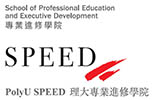雙語社評齊齊聽
[英語 (足本收聽)] Presented by Mr LAU, Jimmy Ka-kiu, Lecturer of Hong Kong Community College, The Hong Kong Polytechnic University
[普通話 (足本收聽)] Presented by Dr CHOI, Wai-yuk, Lecturer of Hong Kong Community College, The Hong Kong Polytechnic University
HONG KONG STUDENTS are about to return to school in droves. However, due to the pandemic, all secondary and primary schools in the city will have to resort to online teaching at the beginning of the new semester, meaning that students will have to learn at home. The government hopes that as the third wave of the COVID-19 outbreak is gradually easing, teaching at secondary schools can resume in phases in September. However, given the unpredictability of the pandemic, there is no guarantee that the plans to bring education back to normal will not go awry.
Since the pandemic broke out in January, secondary and primary schools in Hong Kong have been suspended prolongedly. Students have been greatly affected. Although all schools arranged online teaching to prevent students from staying idle, many of these arrangements were hastily made. Teachers, students and parents were all unprepared, which gave rise to many problems and confusions. Hong Kong secondary and primary schools adopt school-based management and have their own ways in terms of online teaching. There is not a standard practice that must be adhered to. While some more resourceful schools were able to arrange for more teachers to teach online courses, there were schools that were mostly playing educational videos in a one-way teaching mode. The learning outcomes of such so called "learning when classes are suspended" arrangements vary not only from school to school, but also according to students' learning attitudes at home.
Home learning settings largely differ from those of a school. Students are more easily distracted. This unavoidably makes a huge dent in learning efficiency. Apart from affecting students' studies, reliance on online teaching for prolonged periods as a means for foundational education for secondary and primary students is not conducive to physical and mental development either. Not only do students go to school to acquire basic knowledge, but they also learn to socialise and build friendships during their time on campus, which is even more important. This is impossible when students learn at home.
As the third outbreak in Hong Kong has receded slightly, now is a crucial time. Class resumption at secondary and primary schools has to be arranged in a careful and gradual manner. For the education sector, an even bigger issue is how to ensure that this resumption will be "sustainable", i.e., that it will not be called off as it was in May and June, when classes were suspended for just a month or so after they had been resumed, disrupting teaching arrangements and affecting learning progress.
For social and economic activities to "resume sustainably" amid the pandemic, the government must start from aspects including testing, tracking and isolation treatment. A highly efficient system for controlling the disease must be set up. Just as the catering industry cannot stand the torture of anti-pandemic measures that "are sometimes relaxed and sometimes tightened," classes cannot be "sometimes suspended and sometimes resumed". It is of crucial importance to know how to control the risks of outbreaks effectively in schools.
No doubt, given the unpredictability of the pandemic, online teaching, though not an ideal choice, is also an unavoidable one in the new normal of the pandemic. With the new semester approaching, some schools have invested more heavily in resources and computer hardware and software, hoping to improve the quality of online teaching. However, teachers need to make plenty of preparations for online teaching, and both the Education Bureau and schools themselves should provide more support for them. Furthermore, online teaching involves issues regarding computing equipment. Many low-income families have only a tiny and narrow living space and lack adequate computing equipment or good internet connections to allow several of their children to learn at home concurrently. The problems stemming from the digital divide are concerning. The government needs to strengthen its support for students with low-income backgrounds and prevent them from being severely affected in their learning progress due to their familial backgrounds and a lack of computing devices.
疫下基礎教育新常態 中小學須「可持續重開」
莘莘學子開學在即,受疫情影響,新學年初期,全港中小學都要網上教學,學生們只能「在家開學」。當局希望第三波疫情徐徐緩和,中學可以在9月內分階段復課,然而疫情反覆不定,教育復常之路,難保不會橫生枝節。
今年1月疫情爆發以來,本港中小學長時間停課,對學生影響很大。雖然各校都有安排網上教學,避免學生荒廢學業,可是很多安排都是急就章,無論教師、學生和家長都缺乏準備,衍生不少問題和混亂。本港中小學奉行校本管理,網上教學各師各法,沒有標準可言,一些條件較佳的學校,能多些安排老師網上授課,然而亦有一些學校主要是單向播放教學影片,所謂「停課不停學」,實際效果既因校而異,亦很視乎學生在家學習的態度。
在家學習與在校環境大大不同,學生更易心有旁騖,學習效率難免大打折扣。中小學基礎教育長期依靠網上授課,除了影響學生課業,也不利身心健康發展。學童返學,為的不僅是吸收學科基本知識,更重要是在校園生活中,學習人際交往建立友誼,這些都是在家學習無法做到的。
本港第三波疫情回落,現在是關鍵時期,中小學復課安排需要謹慎、循序漸進。對教育界來說,更大的問題是如何確保這次復課「可持續」,不會像今年5、6月中小學短暫復課個多月後,又因疫情惡化腰斬,打亂教學安排,影響學習進度。
疫下社會經濟活動要做到「可持續重開」,政府必須從檢測、追蹤、隔離治療等方面入手,建立一套高效控疫系統;正如飲食業經不起防疫措施「時收時放」的折騰,學生返學也不能「時停時開」,如何有效控制校內爆疫風險至關重要。
當然,疫情反覆難測,網上教學雖非理想選擇,然而也可能是疫下新常態不能迴避的選項。隨着新學期來臨,部分學校投入較多資源和軟硬件,希望提高網上教學質素,然而教師要為網上授課做很多準備,教育局和校方應為他們提供更多支援。另外,網上教學涉及電腦設備等問題,很多基層家庭居住環境狹窄,也沒有足夠的電腦設備或良好的網絡連接,讓多名子女同時在家上課,數碼鴻溝的問題令人關注,當局有必要加強對基層學童的支援,避免他們因為家庭環境和電腦設備不足,嚴重影響學習進度。
明報社評2020.08.28






